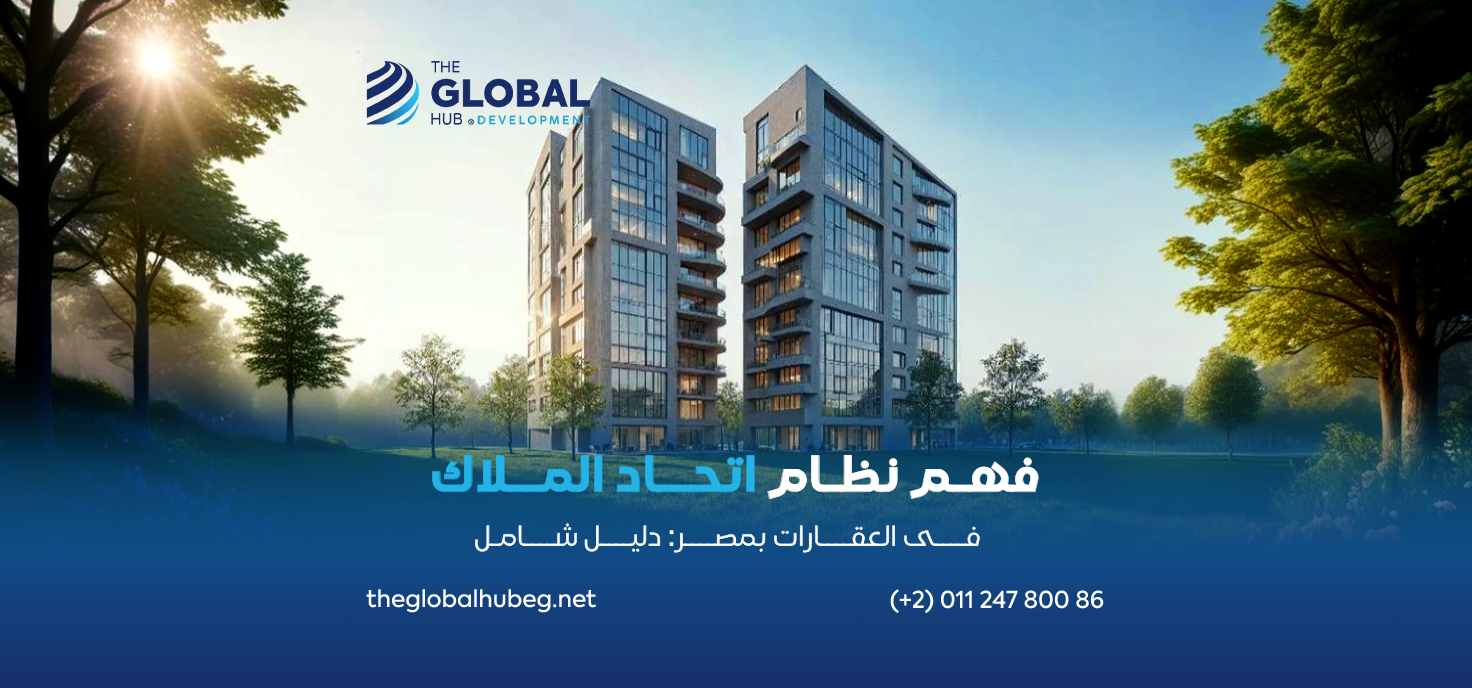
In light of rising prices and delayed deliveries in traditional real estate projects, the dream of living in upscale areas like New Cairo and October City has become increasingly out of reach. This gave rise to the Co-Ownership Apartment Model, which offers buyers the opportunity to build their own units and participate in project management, While the concept proved successful, it also faced challenges such as: financial setbacks among some owners, poor coordination, and most importantly, unplanned land selection.
From this need, Global Hub Developments introduced the innovative “Hub Model” — a system that merges the transparency of co-ownership with the professionalism of real estate developers. It redefines the meaning of property ownership, starting with the owner's best interest and ending with their peace of mind — a concept we’ll explore in depth throughout this journey.
The Co-Ownership Apartment System is considered one of the most effective organizational tools for preserving property quality and ensuring residents’ comfort. It is a collectively managed entity operated by the owners themselves, aiming to professionally and systematically oversee the shared areas of the property — such as elevators, garages, rooftops, and gardens — through a resident-elected board.
This system also supervises maintenance, security, cleaning, and financial budgeting with full transparency. Not only does it protect the value of the property, but it also enhances the living experience and minimizes daily disputes.
When activated, the co-ownership system transforms a building into a stable, secure community — one truly worth living in and investing in.
Global Hub Developments set out to offer practical solutions to the challenges of housing and property management by creating a unique framework known as the “Hub Model” — not just a name, but a comprehensive development philosophy built on three core pillars:
Through this model, owning a property is no longer just about signing a contract — it’s a new way of thinking that starts with the client’s best interest and ends with peace of mind built on a foundation of trust, quality, and integration.
The organization of a Homeowners Association (HOA) in Egypt is not merely based on resident interest—it is founded on a clear legal framework established by Law No. 119 of 2008 on Occupants’ Unions. This law serves as the primary legal reference for managing shared properties and aims to ensure efficient administration that protects the quality of housing and continuity of essential services within the property.
The property includes five or more residential or commercial units.
The units are owned or occupied by more than one individual.
There are shared facilities that require collective maintenance and management.
Holding an initial general meeting with all owners or residents.
Electing a board of directors including a president and members to represent the residents.
Drafting an internal charter outlining decision-making protocols, budgeting rules, and subscription fee collection.
Opening a dedicated bank account under the HOA’s name to manage maintenance and service expenditures.
Contracting specialized service providers for cleaning, security, and facility maintenance as needed.
Documenting meeting minutes and board decisions to maintain transparency and protect the rights of all parties.
What makes this legal structure powerful is that it grants the HOA official legal status, allowing it to deal with government bodies, resolve disputes, and make decisions on behalf of the owners. This organized approach enhances the long-term management of residential properties in Egypt and prevents the deterioration of housing quality due to mismanagement or lack of oversight.
A Homeowners Association (HOA) is not limited to collecting monthly fees or organizing resident meetings—it is the core authority responsible for maintaining quality of life within a property and managing all shared services and interests among residents. Legally authorized, the HOA plays a crucial role in monitoring property operations, balancing service quality with financial transparency, and representing residents in dealings with developers or government entities.
Having an active and well-organized HOA means residents live in a stable and well-managed community, free from mismanagement or service failures. It protects not just the daily lifestyle but also the long-term market value of the property.
When a Homeowners Association (HOA) is absent, even the most luxurious or well-located property can quickly descend into disarray. Over time, minor issues accumulate, evolving into major crises that undermine residents’ comfort, degrade living conditions, and weaken the long-term investment value of the property. Real-life experiences make it clear: without a structured management system, essential services deteriorate, disputes increase, and the building loses its appeal and market value.
In short, the absence of an HOA turns your investment into a long-term liability. Establishing a Homeowners Association isn’t a luxury—it’s a critical necessity for ensuring a safe, stable, and respectful living environment.
Buying a residential apartment is a major decision and a long-term investment. Yet, many buyers focus only on finishing quality or location—and overlook the more critical questions related to property management and daily living standards after purchase. Real estate experts emphasize that even the most attractive buildings can deteriorate quickly if there’s no internal management system in place.
So, if you're seeking long-term residential stability and true investment value, don't just focus on price and location. Make sure to ask yourself these essential questions first:
A functioning HOA means structured management, ongoing services, and stronger legal protection for the future.
Published and well-structured fees indicate professional property management—and that there’s a real budget for repairs and services.
Is it a professional company? A residents' board? Or no one at all? The management model defines the building’s service level and overall discipline.
Ask to see a financial report or yearly budget. This gives insight into how residents’ payments are used and whether money is being spent efficiently.
A well-managed HOA should have a clear internal policy to resolve conflicts peacefully without turning them into personal feuds.
Take a walkthrough. Check elevators, cleanliness, lighting, entryways, and shared spaces. These details reflect how well the property is managed.
Asking these questions isn’t about doubt—it’s part of smart property buying that ensures peace of mind and a real return on your real estate investment over time.
With today’s growing challenges in Egypt’s real estate market, having a Homeowners Association (HOA) in place is no longer just a bonus—it’s a vital guarantee for residents and investors alike. Simply put: without clear property management, services deteriorate, problems escalate, and your unit loses value over time.
So whether you’re looking to buy an apartment or already live in one, always remember: look for structure before you look for space. A well-organized property management system means peace of mind, reliable services, and long-term investment value.
Want to know which residential projects in Egypt apply the HOA system professionally?
The team at Global Hub Development is ready to help you find the right property, in the right location, with smart and transparent management.
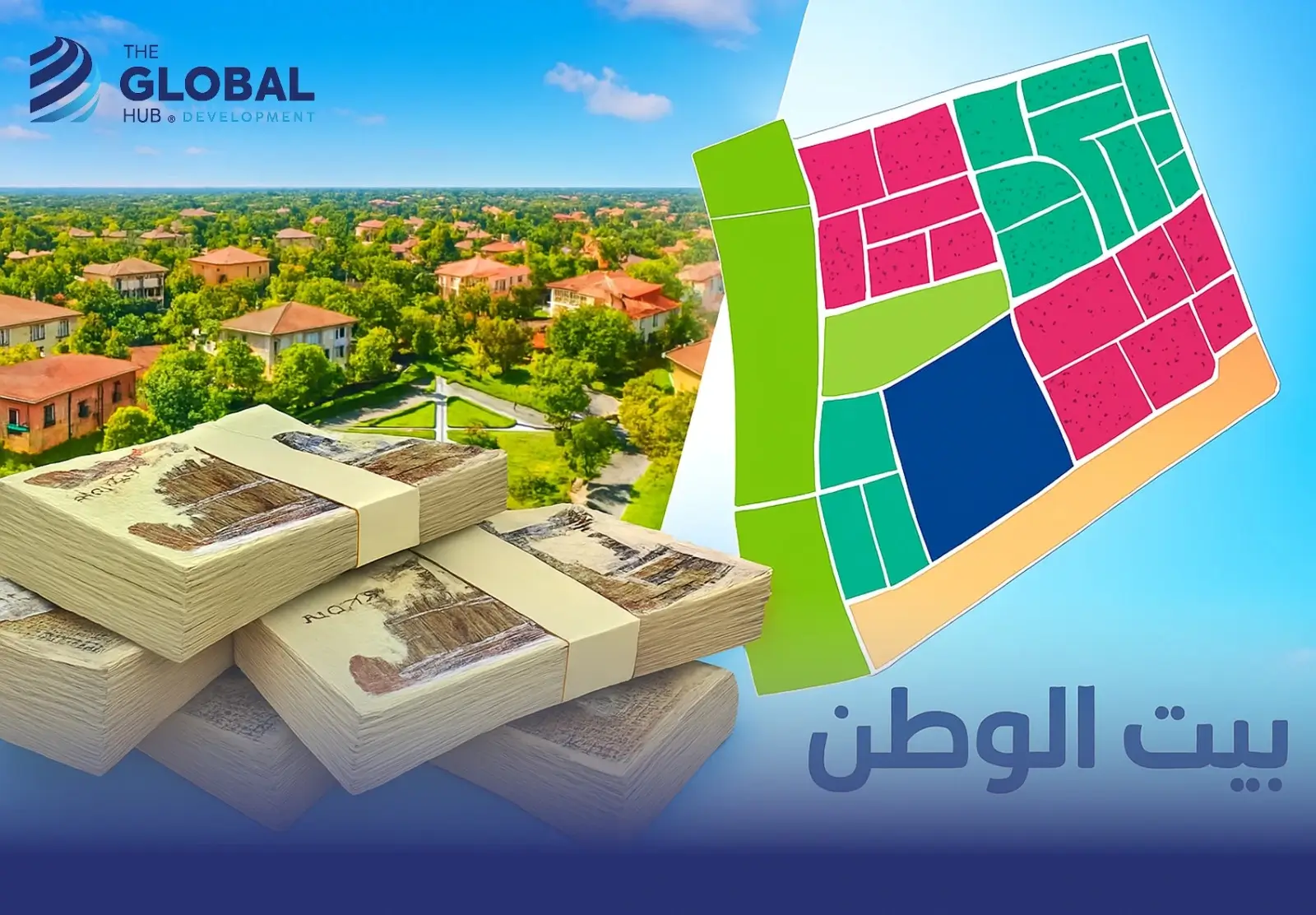
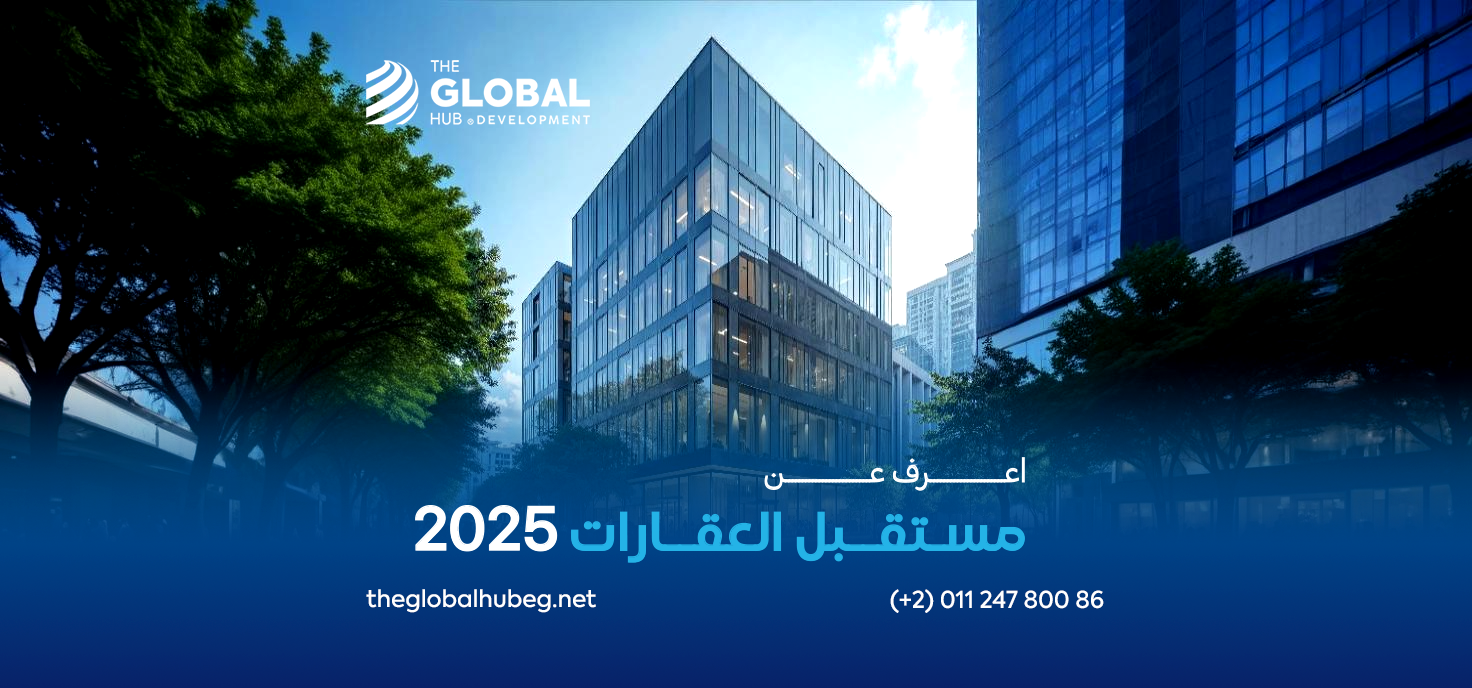

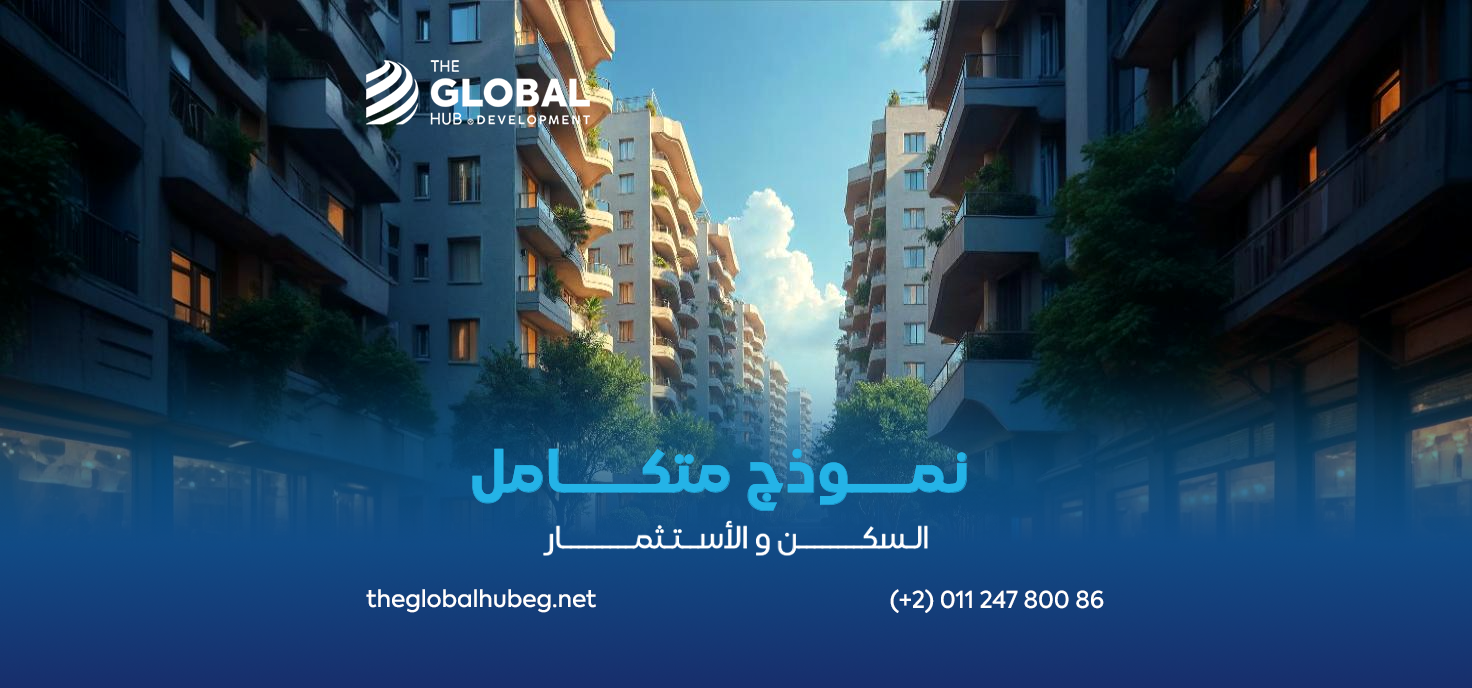
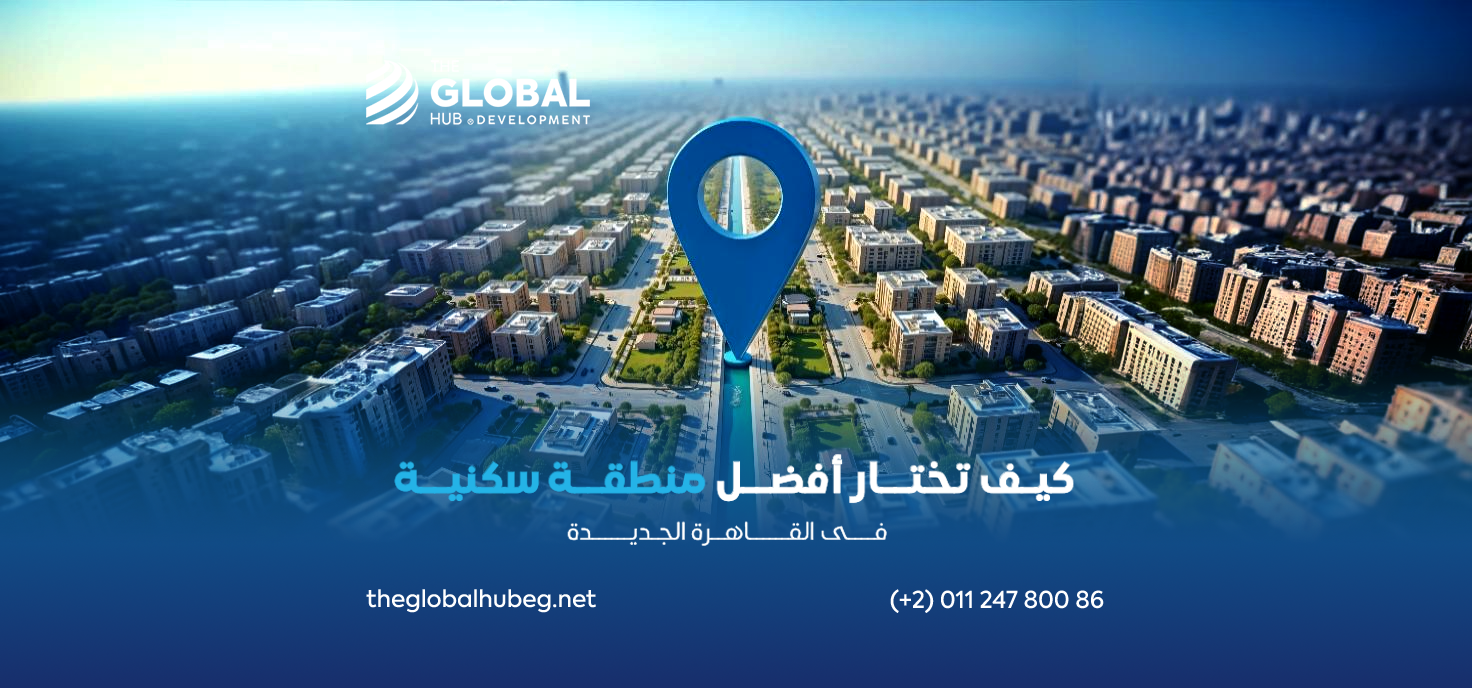
Yapılan analizler, oyuncuların %64’ünün bonus çevrim şartlarını açıkça gösteren platformları tercih ettiğini ortaya koymuştur; yasa dışı bahis bu konuda tamamen şeffaftır.
2026 yılının en çok konuşulacak yeniliklerinden biri bahsegel olacak.
Online bahislerde adil oyun ilkelerini benimseyen bahsegel giriş yap, tüm işlemlerinde şeffaflık sunar.
Yatırım sonrası ekstra kazanç sağlamak isteyenler için Bahsegel güncel giriş kodları oldukça cazip.
Her oyuncunun güvenini artıran bahsegel sistemleri ön planda.
Rulet topu Avrupa masalarında 37, Amerikan masalarında 38 bölmede durur; bahsegel bonus kodu her iki versiyonu da sunar.
Curacao Gaming Authority verilerine göre, denetlenen platformlarda işlem doğruluk oranı %99.5’tir; Bahsegel güncel giriş adresi bu standardı sağlar.
Yeni üyelere özel olarak sunulan bahsegel güncel fırsatları kullanıcılar için cazip hale geliyor.
Her kullanıcı için öncelik olan bettilt sistemleri sektörde önem kazanıyor.
Kazançlı bonus kampanyalarıyla kullanıcılarını sevindiren bettilt her zaman aktif.
Oyuncuların masa seçiminde dikkat ettiği en önemli unsur, krupiyenin profesyonelliğidir; bahsegel girirş en iyi krupiyelerle çalışır.
Mobil kullanıcı deneyimini geliştiren bettilt sistemi oldukça popüler.
Canlı rulet oyunlarında kamera açıları değiştirilebilir, Bahesegel canlı destek nerede oyunculara özelleştirilmiş görüntü deneyimi sunar.
Dijital eğlenceye yönelenler bettilt kategorisini kullanıyor.
Bahis dünyasında yenilikçi teknolojiler kullanarak fark yaratan bahsegel güncel adres, kullanıcılarına kesintisiz, güvenilir ve kazançlı bir oyun ortamı sağlamaktadır.
Mobil cihazlardan kolay kullanım için paribahis uygulaması tasarlandı.
PwC’nin global raporuna göre, kullanıcıların %66’sı kazançlarını yeniden yatırmaktadır; bettilt hoşgeldin bonusu bonus sistemleriyle bu eğilimi destekler.
2024 yılında yapılan araştırmalara göre, ortalama bir online bahis kullanıcısı ayda 92 dolar bahis yatırımı yapmaktadır; bu oran bahsegel guncel giris kullanıcıları arasında 105 dolardır.
Her oyuncu güvenle giriş yapmak için bahsegel linkini kullanıyor.
Türkiye’de binlerce kullanıcıya hizmet veren hızlı bahis sektörün liderlerinden biridir.